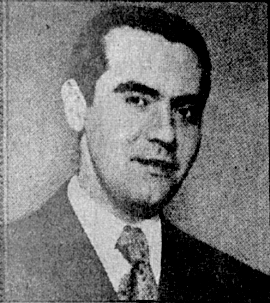
Confronting Bodies: Franco regime
Date of Action: August 9, 1936
Specific Location: Spain
Description of Artwork: Lorca's poetry and plays combine "elements of Andalusion folklore with sophisticated and often surrealistic poetic techniques, cut across all social and educational barriers". Works include: Thus Five Years Pass, The Public, Dona Rosita. He is toted to have succeeded in the creation of a viable poetic idiom for the stage, superior to the works of his contemporaries, Yeats, Eliot and Claudel.
Description of Incident: "August 9, 1936, Falangist soldiers dragged the Spanish poet and playwright Federico Garcia Lorca into a field, shot him and tossed his body into an unmarked grave... Franco's government tried to obliterate Lorca's memory. His books were prohibited, his name forbidden.
Results of Incident: "One of the first and most famous casualties of the Spanish Civil War, Lorca quickly became an almost mythical figure, a symbol of all the victims of political oppression and fascist tyranny." People began speaking publicly about Lorca again in the late 1940's, and The House of Barnardo Alba was the first of his plays to be produced in Spain (1950), since his death and since the end of the war. Though foreign influence helped to loosen the Franco regimes control over Lorca's work, bans were still placed as late as 1971. Due to public outcry however, Lorca's work was produced. "Lorca's reconquest of the Spanish public, and his growing prestige among scholars is a relatively recent phenomenon. When his works began to recirculate freely, many people who knew only the 'Gypsy Ballads' and two or three of the more popular plays considered Lorca a poet of limited interest and local color. "When his later poetry and experimental plays such as 'The Public' came to be better known and understood, attitudes changed. 'Today,' observed Jose Luis Cano, a literary critic and biographer of Lorca, 'Lorca's reputation and popularity have soared, and they are based primarily on 'Poet in New York', Lorca's harrowing account of the year he spent in America. It is now recognized as one of the great monuments of 20th-century poetry'."
Source: Kiki Haralambides